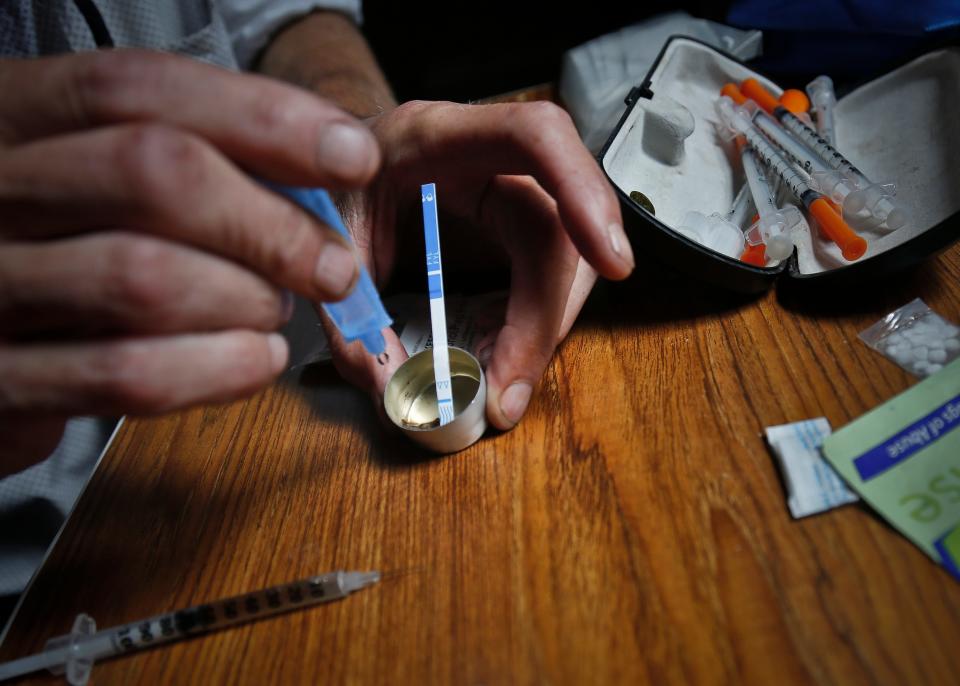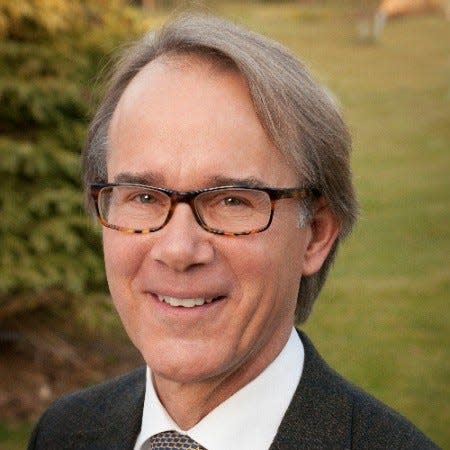Oregon voters chose a different approach toward drug use. It was never going to work.
The global response to the substance use epidemic is failing. It’s not only opioids. Every year we throw billions of dollars at this issue; yet, more and more people die from the use of addictive drugs.
The mounting costs of substance use disorders are directly tied to decades of inadequate policies and practice that don’t encourage recovery.
In 2020, voters in Oregon approved taking a different approach. Ballot Measure 110 removed criminal penalties for carrying small amounts of drugs such as cocaine, heroin and methamphetamine. The measure also directed that hundreds of millions in marijuana tax dollars would be for addiction treatment services.
It was a dramatic retreat from the war on drugs. But, sadly, it has yet to help.
Oregon has the second highest substance use disorder rate in the country, and in the past year, the states suffered a sharp spike in overdose deaths.
Those results were predictable: When perceived risk of drug use diminishes, which is inherent in legalization and decriminalization, more people, especially youth, begin using, resulting in more disordered use.
We are fortunate to be among those in long-term recovery, achievements we couldn’t have done on our own. But most of those who need help don't get it.
Substance use is killing our kids: Drugs and untreated mental health issues are killing America's kids. You can help stop it.
Most who need treatment for substance use disorder don't receive help
More than a decade ago, the National Center on Addiction and Substance Abuse reported that only a minority of people received any treatment, and of those who did get access to providers, most weren’t offered treatments with proven benefit.
The problem persists today. A study published in the Journal of the American Medical Association, of more than 150,000 Medicare recipients by health providers on the front lines in New York state, showed that about a quarter of those who undergo detox or present to emergency rooms with alcohol or other drug use disorders receive any follow-up care.

In this study, medication was the intervention most likely to be used. With more than 100,000 overdose deaths a year, new systems of addiction care are justified, and urgent.
Medications like Suboxone help people stay abstinent, prevent overdose and assist in the early stages of recovery. Unfortunately, they are not a permanent solution.
Another recent report in JAMA adds to growing suspicions that substituting one addictive drug with another sells patients short in the long term: Medications by themselves are an inadequate treatment of a brain disease with biological, psychological, social and spiritual correlates.
US needs global help on fentanyl: No quick solution to fentanyl crisis, but US is leading the fight
More than 45 million people (16.5% of those 12 years or older) in the United States met clinical criteria for substance use disorders in 2021. To save lives and help heal communities, we should leverage President Joe Biden’s National Drug Control Strategy and revamp the way we treat and prevent drug addiction using established clinical and scientific evidence.
For example, reversing decades of regressive practice, by incentivizing – rather than punishing – those with substance use disorders to get and stay clean is a cost effective intervention that results in long-term success.
States need to declare a public health crisis, establish centralized leadership, develop a system of care that requires all programs work together and hold current programs – especially those receiving state or federal funding – accountable for their use of money, use of proven effective treatments and reporting of treatment outcomes.
Availability of stronger drugs makes crisis even more dire
Because drugs are now stronger and more widely available than ever before, the situation is dire. The focus needs to be on long-term recovery outcomes for this chronic disease. Recovery takes time, and sustained attention to physical, psychological, medical, housing and vocational challenges that are generally coincident with drug addiction are necessary to reverse current trends.
The National Institute of Drug Abuse has long noted that 90 days is the minimum dose of effective care for an average substance use disorder.
Opinion alerts: Get columns from your favorite columnists + expert analysis on top issues, delivered straight to your device through the USA TODAY app. Don't have the app? Download it for free from your app store.
Oregon's Measure 110 put decriminalization ahead of caring for the needs of those with serious substance use disorders – again by focusing on problems and failing to provide solutions. Since decriminalization in Oregon, public drug deals and fentanyl overdose deaths have skyrocketed, and criminal acts are escalating. Even homicides are increasing.
The state wasn’t able to meet daily detoxification needs before the enactment of this measure, and nearly three years after its passage, Oregon still lacks adequate resources for connecting struggling individuals with treatment access. Whether one agrees with decriminalization or not, the results have been disastrous, as more and more people are dying.

It’s time for significant changes to substance use and mental health services across the country. Increasing access to drugs before fixing broken systems is certainly not the answer.
The struggle out of homelessness, mental illness and substance use disorders is never easy and will require broad investments in individuals, providers and state systems of care. With appropriate, evidence-based and holistic support, more people with substance use disorders will be able to live healthy, stable and happy lives.

Millions of people already in long-term recovery, including us, attest to this fact. In our cases, timely interventions likely made the difference between early graves and fulfilling lives.
Our work since has been to ensure many more people are able to fulfill their potential, but there is still much to be done.
Judy Grisel is professor of psychology and neuroscience at Bucknell University and author of the book, "Never Enough: The Neuroscience and Experience of Addiction." Marvin Seppala is a nationally known psychiatrist and addiction treatment leader who was the former chief medical officer of the Hazelden Betty Ford Foundation.
You can read diverse opinions from our Board of Contributors and other writers on the Opinion front page, on Twitter @usatodayopinion and in our daily Opinion newsletter. To respond to a column, submit a comment to letters@usatoday.com.
This article originally appeared on USA TODAY: Is drug decriminalization working in Oregon? Sadly, no. Here's why

